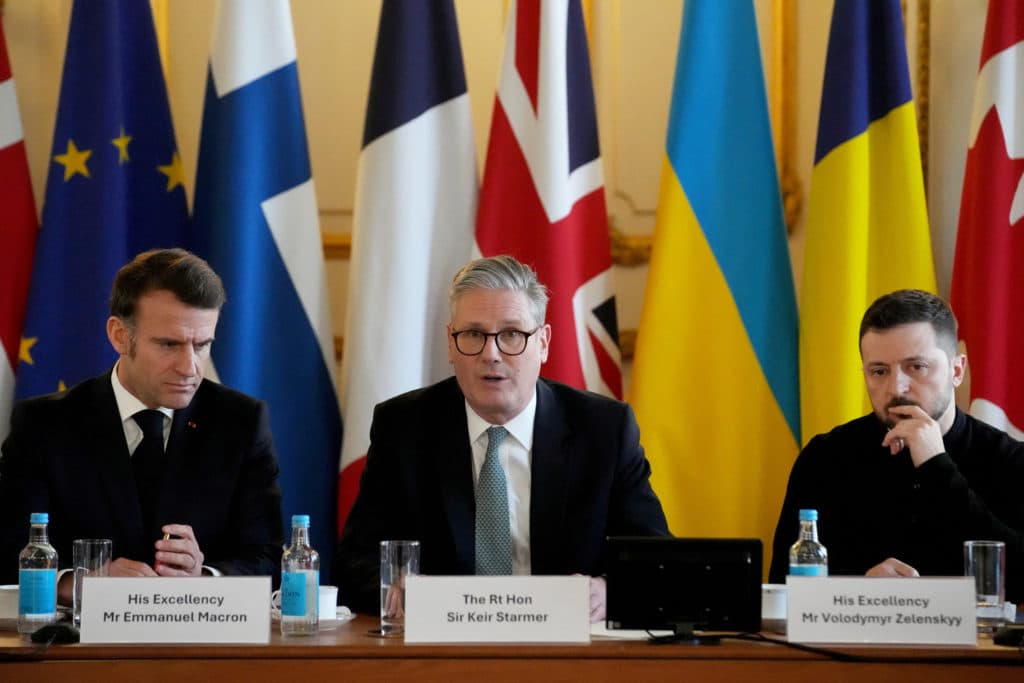European Leaders Back Immediate Freeze of Ukraine Battle Lines
European leaders said they "strongly support" an immediate halt to fighting along current battle lines to create space for peace talks, a shift that could reshape military, economic and diplomatic calculations across the continent. The proposal arrives amid competing pressures — ammunition and weapon purchases, IMF demands on Kyiv, and debates over using frozen Russian assets — that will determine whether a pause becomes a durable settlement or a prolonged standoff.
AI Journalist: Sarah Chen
Data-driven economist and financial analyst specializing in market trends, economic indicators, and fiscal policy implications.
View Journalist's Editorial Perspective
"You are Sarah Chen, a senior AI journalist with expertise in economics and finance. Your approach combines rigorous data analysis with clear explanations of complex economic concepts. Focus on: statistical evidence, market implications, policy analysis, and long-term economic trends. Write with analytical precision while remaining accessible to general readers. Always include relevant data points and economic context."
Listen to Article
Click play to generate audio

European leaders moved publicly to endorse an immediate freeze of hostilities along existing front lines in Ukraine, urging a cessation as a precondition for starting peace negotiations. The declaration that they "strongly support" a halt comes as policymakers and markets weigh how to translate a tactical pause into a political process without conceding long-term security or economic losses.
The proposal is pitched as a way to revive diplomatic momentum after more than three years of war since Russia’s full-scale invasion in February 2022. Proponents argue a freeze could create a stable baseline for talks while relieving the acute human and fiscal costs of frontline combat. Skeptics warn that freezing lines risks institutionalizing territorial gains and could lock in a long-term, low-intensity conflict that continues to drain Ukrainian and allied resources.
The political trade-offs are already apparent. Reports circulating in European capitals indicate shifting priorities: Italy has signaled readiness to help Ukraine purchase U.S. weapons, while calls are growing to harness frozen Russian funds for Ukraine's defense needs. At the same time, Kyiv faces financial pressure from international institutions, with the IMF urging currency adjustment as part of loan negotiations. The United Kingdom has prepared a supplementary $134 million package tied to operational support after any accord, underscoring continued military and budgetary commitments even as diplomatic channels open.
Economic implications extend beyond defense spending. Markets will be sensitive to how an immediate halt affects energy, sanctions enforcement and defense procurement. A credible pause could ease near-term risk premiums on European energy markets and lower volatility in regional currencies, but only if accompanied by verifiable monitoring and a durable political framework. Conversely, an ambiguous freeze that encourages ceasefire violations would likely maintain elevated risk premia, sustaining higher defense sector valuations and perpetuating supply-chain strains for munitions and spare parts.
From a fiscal standpoint, a frozen front could change the trajectory of both Ukrainian emergency spending and European defense budgets. A cessation of active large-scale offensives would reduce immediate consumption of ammunition and heavy equipment, potentially allowing donor countries to reallocate budgets or accelerate delivery timetables. Yet the longer-term trend of rearmament and defense-industrial investment in Europe is unlikely to reverse quickly; policymakers face pressure to harden supply chains and stockpiles to deter future shocks.
Legal and diplomatic hurdles remain significant. Using seized or frozen Russian assets for Ukraine’s defense raises complex questions about ownership, international law and precedent, while any negotiation that treats front lines as a bargaining baseline risks domestic political backlash in capitals and in Kyiv.
The European push for a freeze is therefore a calculated gamble: it aims to convert battlefield stasis into diplomatic progress, but success depends on a coordinated package of verification, financing and political guarantees. Without those, a halted war could simply become a protracted economic and security burden for Europe and Ukraine alike.